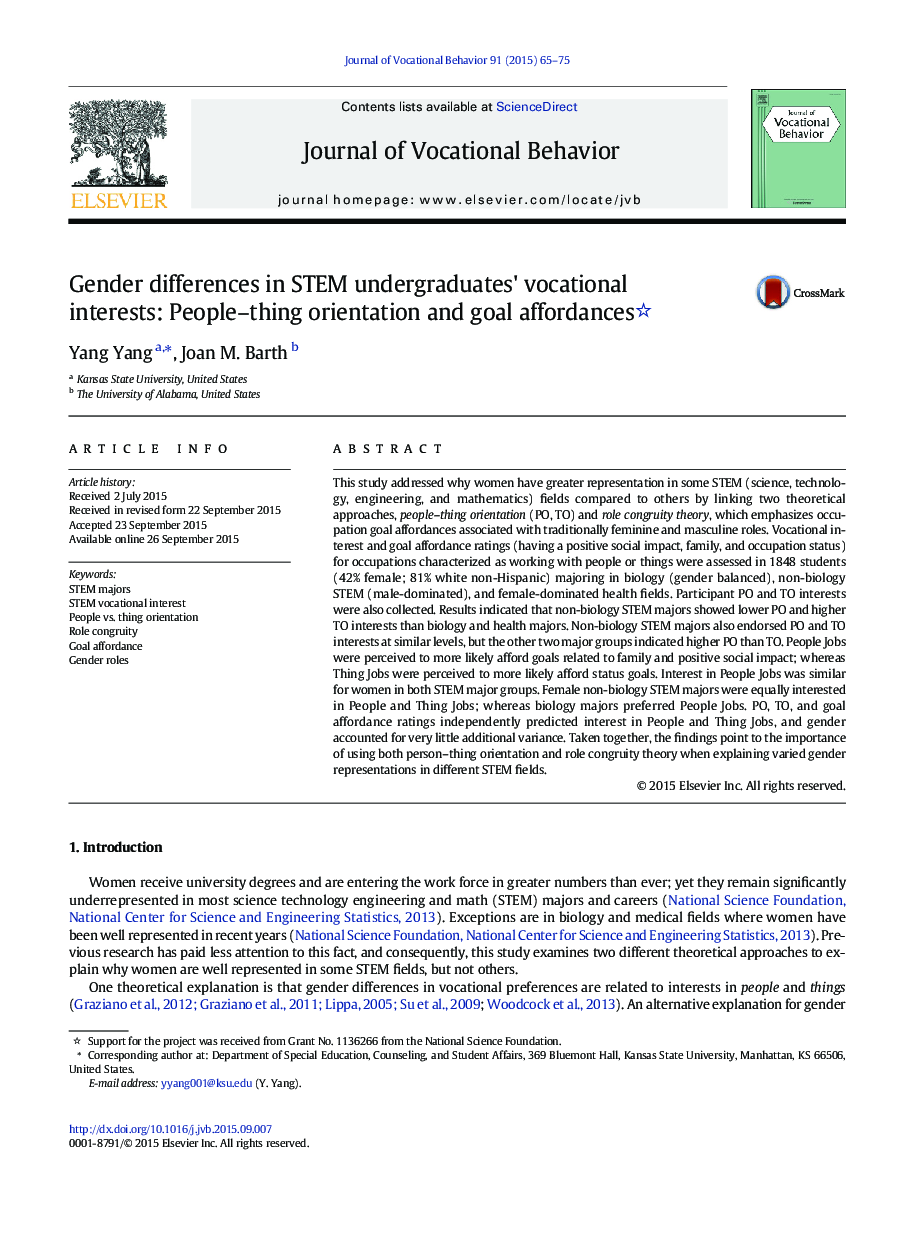| کد مقاله | کد نشریه | سال انتشار | مقاله انگلیسی | نسخه تمام متن |
|---|---|---|---|---|
| 886737 | 1471808 | 2015 | 11 صفحه PDF | دانلود رایگان |
• Students in STEM majors with an underrepresentation of women showed higher interest in things than other majors.
• Female STEM majors with an underrepresentation of women showed similar interest in People and Thing Jobs.
• People Jobs were perceived to more likely afford communal goals than Thing Jobs.
• Thing Jobs were perceived to more likely afford agentic goals than People Jobs.
• People orientation, thing orientation, and goal affordance ratings predicted interest in People and Thing Jobs
This study addressed why women have greater representation in some STEM (science, technology, engineering, and mathematics) fields compared to others by linking two theoretical approaches, people–thing orientation (PO, TO) and role congruity theory, which emphasizes occupation goal affordances associated with traditionally feminine and masculine roles. Vocational interest and goal affordance ratings (having a positive social impact, family, and occupation status) for occupations characterized as working with people or things were assessed in 1848 students (42% female; 81% white non-Hispanic) majoring in biology (gender balanced), non-biology STEM (male-dominated), and female-dominated health fields. Participant PO and TO interests were also collected. Results indicated that non-biology STEM majors showed lower PO and higher TO interests than biology and health majors. Non-biology STEM majors also endorsed PO and TO interests at similar levels, but the other two major groups indicated higher PO than TO. People Jobs were perceived to more likely afford goals related to family and positive social impact; whereas Thing Jobs were perceived to more likely afford status goals. Interest in People Jobs was similar for women in both STEM major groups. Female non-biology STEM majors were equally interested in People and Thing Jobs; whereas biology majors preferred People Jobs. PO, TO, and goal affordance ratings independently predicted interest in People and Thing Jobs, and gender accounted for very little additional variance. Taken together, the findings point to the importance of using both person–thing orientation and role congruity theory when explaining varied gender representations in different STEM fields.
Journal: Journal of Vocational Behavior - Volume 91, December 2015, Pages 65–75
